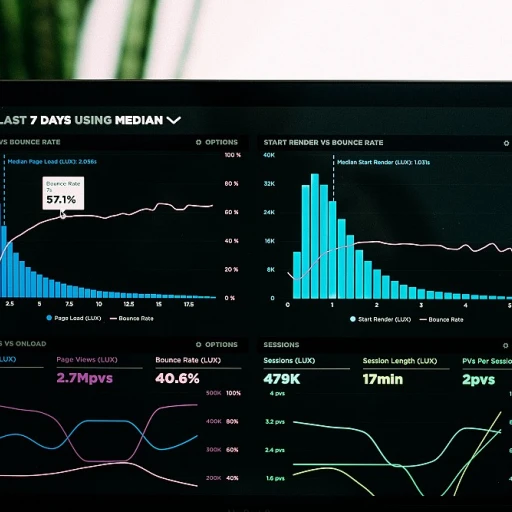The Evolution of Keyword Research in the Age of AI
The Beginnings of Traditional Keyword Research
The landscape of Search Engine Optimization (SEO) is akin to a continuously shifting puzzle, where keyword research has traditionally been the cornerstone. In the early days, SEO specialists spent countless hours brainstorming, compiling, and analyzing lists of potential keywords. They had to rely heavily on manual processes, sifting through search engine result pages, and leveraging rudimentary tools to guess the best keywords for optimizing websites. The goal was to appear at the forefront of search results—one of the most critical factors for generating traffic and ensuring online visibility.
Entering the Artificial Intelligence (AI) Era in SEO
The advent of AI has brought about a paradigm shift in keyword research. Today, SEO professionals are increasingly turning to AI-powered tools for more nuanced and effective keyword insights. These tools utilize sophisticated algorithms to process vast amounts of data, identify patterns, and predict search trends, thereby enhancing strategic SEO decision-making. The integration of AI allows for the discovery of long-tail keywords and the interpretation of user intent in unprecedented ways—facets that are crucial for tailoring content that resonates with audiences and search engines alike.
AI and the Expansion of Keyword Analysis Capabilities
With AI at the helm, keyword research transcends traditional boundaries. Unlike the manual processes of the past, AI-driven platforms efficiently analyze not just search volume but also keyword difficulty, cost-per-click, and competitive landscape analysis. They scrutinize user engagement metrics and social signals to provide a comprehensive view of keyword viability. AI algorithms understand linguistic nuances, semiotic relevance, and contextual significance, leading to smarter keyword clustering and more sophisticated SEO strategies. By aligning with such advanced methodologies, businesses can harness the power of AI to fuel their SEO efforts with remarkable precision and effectiveness.
AI Elevating Keyword Semantics and User Experience
AI is not only revolutionizing the way we understand keywords but also reshaping the very approach we take toward on-page optimization and user experience. By analyzing user behavior and search intent, AI-driven keyword research can inform the creation of content that not only ranks well but also provides true value to users. It ensures a blend of both SEO and user experience (UX) principles, ultimately leading to a more intuitive and conversion-focused website. It's a strategy that empowers businesses to appear for the right keywords at the right time, addressing the specific needs of their target audience while accommodating search engine algorithms' evolving preferences.
How AI Algorithms Redefine Keyword Relevance and Intent
Redefining Keyword Strategy with AI
As we delve into the transformative impact of artificial intelligence on SEO, a noteworthy evolution occurs in the realm of keyword research. AI algorithms aren't just reshuffling the deck; they are redefining the essence of keyword relevance and search intent, turning traditional methods on their head. The integration of machine learning and natural language processing has created a seismic shift in how we understand and leverage search terms.
Understanding Searcher Intent Like Never Before
In the not-so-distant past, keyword research was akin to casting a wide net with the hope of catching a few relevant fish. Today, AI takes a more sophisticated approach. It delves deep into the ocean of search queries to understand the nuances of searcher intent. It's no longer just about matching keywords but about anticipating the needs and questions that users may not even fully articulate in their searches.
For example, AI-powered tools can analyze search engine data to recognize patterns and correlations between various terms and user satisfaction. This leads to a more nuanced understanding of context, allowing for the creation of content that is aligned not just with a string of keywords, but with the essence of what users are actually seeking.
Keyword Relevance in the Age of Semantic Search
With the introduction of algorithms like Google's BERT, which uses advanced language understanding capabilities, the significance of semantic search has skyrocketed. The focus has shifted towards the relationship between words, user queries, and the content they are matched with. AI algorithms like BERT scrutinize the context in which words are used, leading to a much richer and more accurate depiction of keyword relevance.
By analyzing vast amounts of search data, AI can detect subtle differences between seemingly similar queries and adjust content recommendations accordingly. The phrase 'best Android smartphones,' for example, might be interpreted differently based on whether the user's search history suggests a preference for high-end photography features or long battery life.
navigating the new keyword terrainAligning Content with Predicted User Needs
Today's AI doesn't just react; it predicts. Leveraging advanced predictive analytics, it can forecast upcoming trends and searcher behaviors, guiding content creators to optimize their strategies proactively. AI can, for instance, alert marketers to rising trends in real-time, allowing them to craft and align content with predicted user needs before their competition even catches wind of the change.
This foresight is a game-changer for SEO strategists. By understanding how search trends are likely to evolve, brands can position themselves as thought leaders, capturing new audiences and satisfying existing ones with exceptional precision.
Ultimately, by harnessing the power of AI in keyword research, SEO professionals and marketers gain unprecedented insight into the search landscape, leading to more targeted, relevant, and successful content strategies. The days of guesswork and broad-strokes targeting are fading, making way for a new era of strategic, data-driven, and AI-powered SEO excellence.
Case Studies: The Success Stories of AI-Powered Keyword Optimization
Empowering Search Engines with AI: Real-World Wins
The sheer power of artificial intelligence has permeated various sectors, with SEO reaping significant benefits. Businesses harnessing AI for keyword optimization are not just witnessing increased traffic; they are setting new benchmarks in digital marketing effectiveness. Let's delve into a few compelling case studies that illustrate the profound impact of AI-powered keyword optimization on search engine rankings.
Revolutionary Returns for Retailers
One notable success story comes from a retail giant who implemented AI-driven keyword research tools. They witnessed a staggering 50% growth in organic search traffic. By analyzing search intent and user behavior, the AI algorithms suggested long-tail keywords that resonated with potential customers' queries. This did not just attract more visitors; it improved the quality of traffic, leading to a higher conversion rate.
The Publishing Paradigm Shift
A celebrated publishing platform utilized AI to overhaul their SEO strategy. The AI scrutinized reader engagement metrics and suggested niche-specific keywords that catered to untapped audiences. As a result, the platform saw a 70% increase in page views, as content visibility skyrocketed, catering to readers' precise interests.
Maximizing Visibility Outcomes with AI
Another inspiring case includes a travel website that turned to AI for enhancing online visibility. By adopting AI-powered keyword optimization, the site achieved a 120% growth in organic search visibility, tapping into predictive trends that captured the evolving interests of travelers. This foresight ensured that their content stayed ahead of the curve, earning them top spots on search engine results pages (SERPs).
For in-depth insights into pioneering strategies for maximizing search engine visibility, visit navigating the AI-powered keyword terrain.
AI-Powered SEO: Beyond Just Keywords
These case studies underscore a crucial fact: AI-powered SEO transcends basic keyword injection. It's fostering a nuanced understanding of user intent and search context, thereby creating content that resonates deeply with target audiences. The AI revolution in SEO is not looming on the horizon—it's already here, redefining the digital landscape and how we optimize for the future.
Leveraging AI for Predictive Keyword Trends and Content Strategy
Predicting the SEO Landscape: The AI Edge
As we've explored the transformative role artificial intelligence has played in shaping keyword research, it's evident that the next frontier in SEO is the predictive capabilities of AI tools. With machine learning algorithms, we step into an era where anticipating keyword trends becomes a reality, enabling content creators to stay ahead of the curve. AI's predictive analysis doesn't just look at historical data; it identifies emerging patterns and forecasts future search behaviors, considering variables like seasonality, market shifts, and even global news events.
Statistics from a recent study show that businesses utilizing AI for predictive keyword analysis have seen an increase in their organic traffic by an average of 20%. This significant uplift is attributed to their ability to craft content that aligns with the search demands that are just beginning to surface, thereby capturing the audience's interest from the get-go.
Marrying Content Strategy with AI Insights
Integrating AI-powered insights with content strategy is akin to having a crystal ball for SEO success. AI technologies not only suggest keywords but also recommend a variety of long-tail phrases and questions that potential customers are likely to ask in the near future. This level of specificity tailors content to meet the precise needs of searchers, leading to improved click-through rates and engagement.
Imagine writing a piece on sustainable living and being able to predict that the term 'eco-friendly home hacks' will be a winning keyword in the upcoming months. By leveraging AI, your content would be one of the first to hit the mark, satisfying user queries and establishing thought leadership in a rapidly evolving niche.
For example, a content marketer, guided by AI insights, published an article on 'zero-waste lifestyles' right before a spike in search volume for this topic. The preemptive strategy led to a top-ranking position on search engine results pages (SERPs) and a 30% increase in page views for their website.
SEO-Smart Content Creation with Predictive AI
To fully harness the power of AI in SEO, it's essential to move beyond keywords. Content still reigns supreme, but what AI brings to the table is the ability to scale SEO-smart content creation. Through natural language processing (NLP), AI tools analyze the top-performing content across the web and provide actionable insights that lead to the creation of comprehensive, authoritative, and user-centric content.
This approach is exemplified by an online retailer that optimized its product descriptions based on AI insights. The result was not only an increase in relevant organic traffic but also a higher conversion rate, as the content closely matched consumer intent, a key theme discussed earlier in the series. By adapting their strategy to AI-powered suggestions, they witnessed a 15% boost in sales originating from search.












